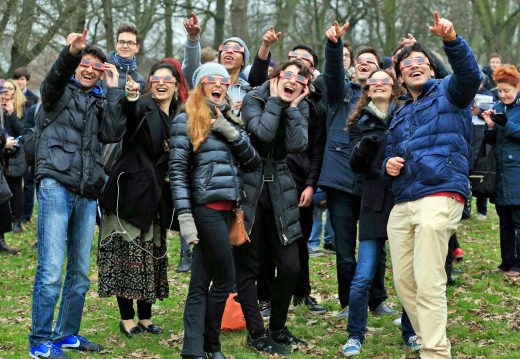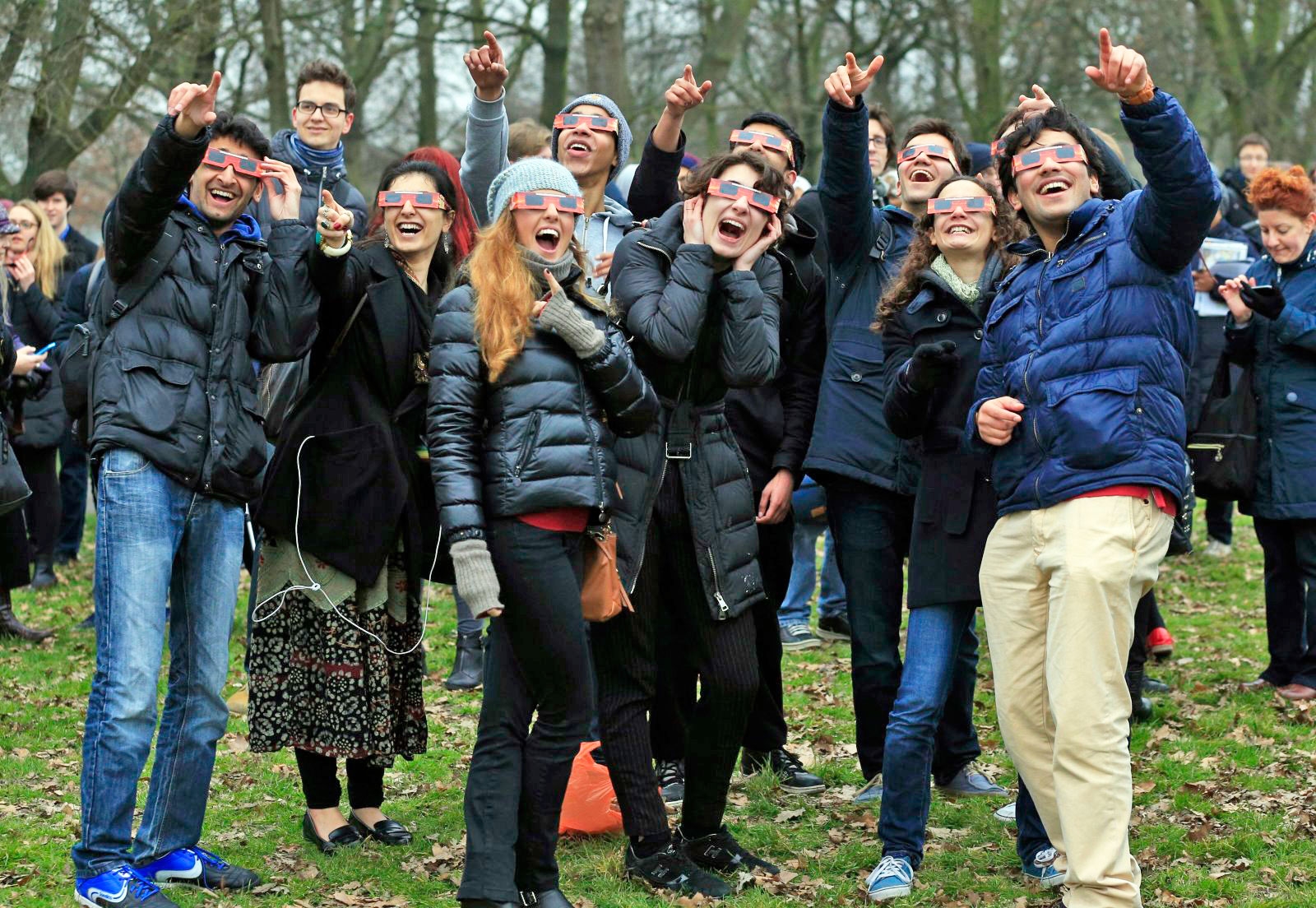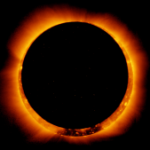The eclipse caused people to look away from their screens
Turns out all it takes for people to put down their phones is a once-in-a-lifetime event. In case you missed it, the eclipse took over the sun (and our lives) (August 27, 2017). Flocks of people headed to the towns and cities within the path of totality to catch it in full. As a a result, smartphones, laptops, and even streaming services went unnoticed — for a little while. People bonded, Trump somehow didn’t go blind, and (for a brief moment) the horrid events of the past weeks were drowned out as we took in the awe-inspiring sight.
The exodus was picked up by a number of web giants. Netflix, for example, claims it witnessed a 10 percent drop in plays during the eclipse. Maybe, it was just a case of everyone binging The Defenders and moving on. More likely, however, people got off their asses and went out. Or switched over to livestreams of the event on Twitter and Facebook.
but really, there was a 10% drop in plays during the eclipse today. Well played, Moon
— Netflix US (@netflix) August 22, 2017
Speaking of President Trump’s fave platform, it seems the eclipse wasn’t anywhere near as popular as other events on Twitter. The six million tweets it generated were completely overshadowed (ahem) by the likes of the 2015 Super Bowl (28.4 million tweets) and the 2014 World Cup final (32.1 million tweets). Facebook fared better with 240 million interactions, but it has 2 billion members.
update: Over 6 million Tweets about #Eclipse2017 the past day https://t.co/nahOUt0Aje
— Twitter Data (@TwitterData) August 21, 2017
Instead of sharing status updates, it seems people were actually more interested in the news. While social media saw a minimal uptick in visitors, media outlets witnessed a 113 percent traffic spike, according to data from Fastly.
Ultimately, it seems we used our phones (and other screens) to read more than post. And, to blare out Bonnie Tyler’s Total Eclipse of the Heart.
(25)









